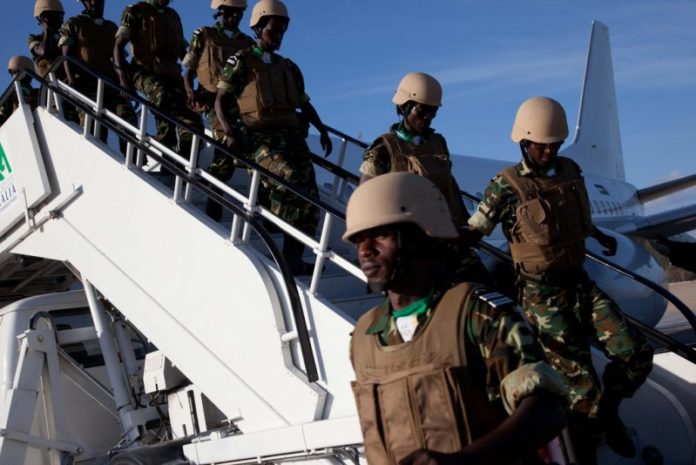AMISOM will withdraw all African troops from Somalia by 2021
Since 2007, AMISOM, the African Union (AU) mission in Somalia, has been tasked with combating Al-Shabaab, an extremist Islamist militant group with ties to Al-Qaeda. Many hundreds of soldiers have died among troops totaling 21,500 from several different countries, with Burundi having the second largest troops after Uganda.
In December 2018, the AU’s Peace and Security Council decided to withdraw 1,000 of their 5,400 Burundian soldiers from Somalia by late February 2019, as part of the progressive reduction of AMISOM military decided by the United Nations Security Council in July 2018. UN resolution 2431 extended AMISOM’s mandate but determined to reduce troop numbers and eventually hand over the conflict to Somali forces by December 2021.
Burundian President Nkurunziza objected to the withdrawal while officials called it dangerous for regional security and protested to the AU. Burundi parliamentarians particularly objected to only Burundian troop reductions and none from other countries. They suggested the threat of withdrawing all their troops if the AU didn’t reconsider the decision. Parliamentarians even spoke of plots and attempt to “destabilize” Burundi.
Burundi’s government had proposed to share the troop withdrawal with other states, as in a previous troop reduction in December 2017.
“Ambassador Basile Ikouébé, Representantive of @_AfricanUnion in Burundi was summoned to the Ministry of Foreign Affairs. The Assistant to the Minister Ambassador Bernard NTAHIRAJA @BNtahiraja reiterated to him a message already communicated to the African Union regarding the Burundian government’s concerns
During the Somali president Mohamed Abdullahi Mohamed’s visit to Burundi in mid-February, both presidents called for a summit in a joint communique to review the issue. Nevertheless, on February 21 and 23, 400 Burundian soldiers returned home, although the Burundian government refused to proceed with withdrawing the remaining 600, originally planned to be completed by February 26.
On February 28, Burundi’s government eventually relented, lacking support or leverage on the issue, and that the remaining soldiers would return in early March, according to high-level anonymous sources of AFP, cited by TV5Monde.






































